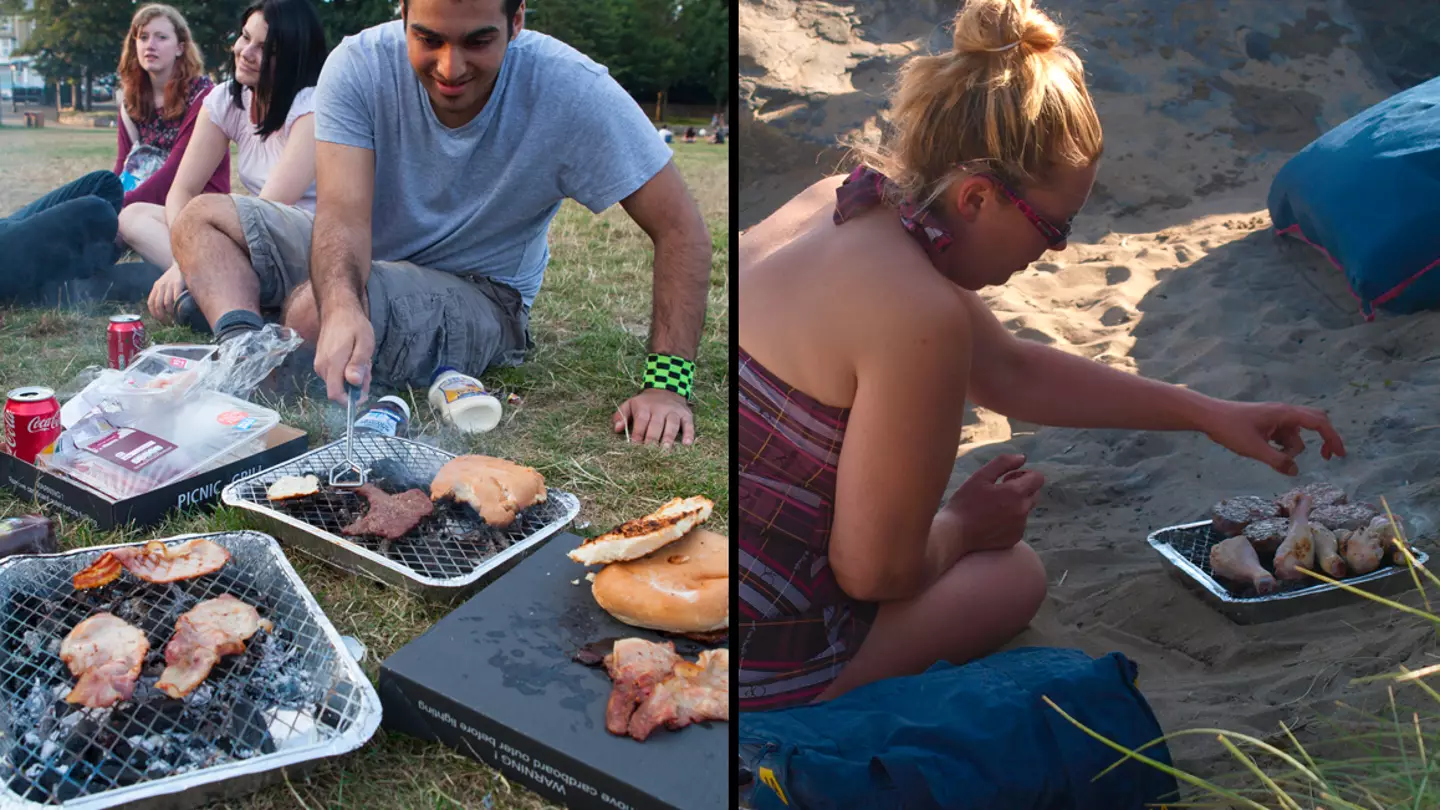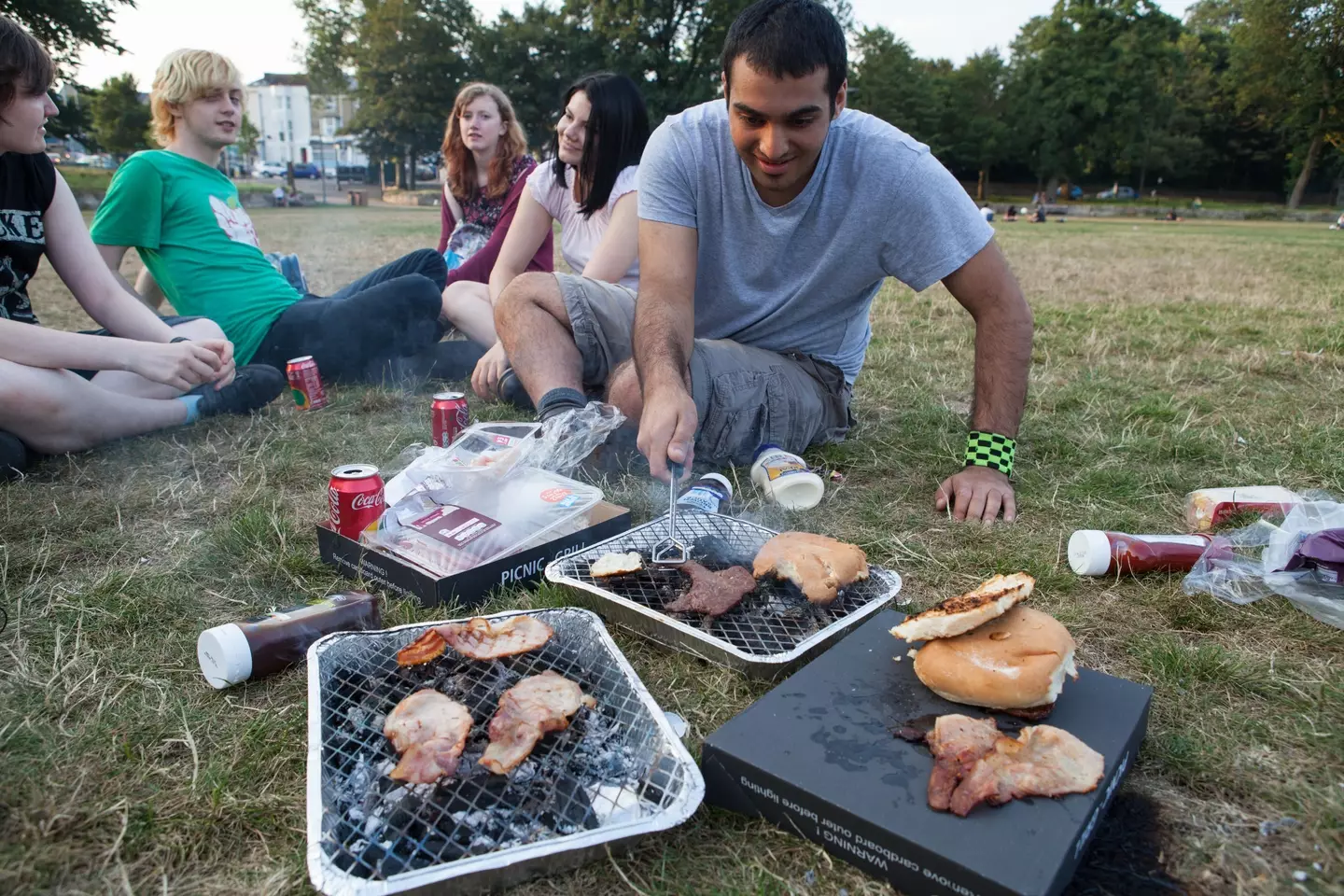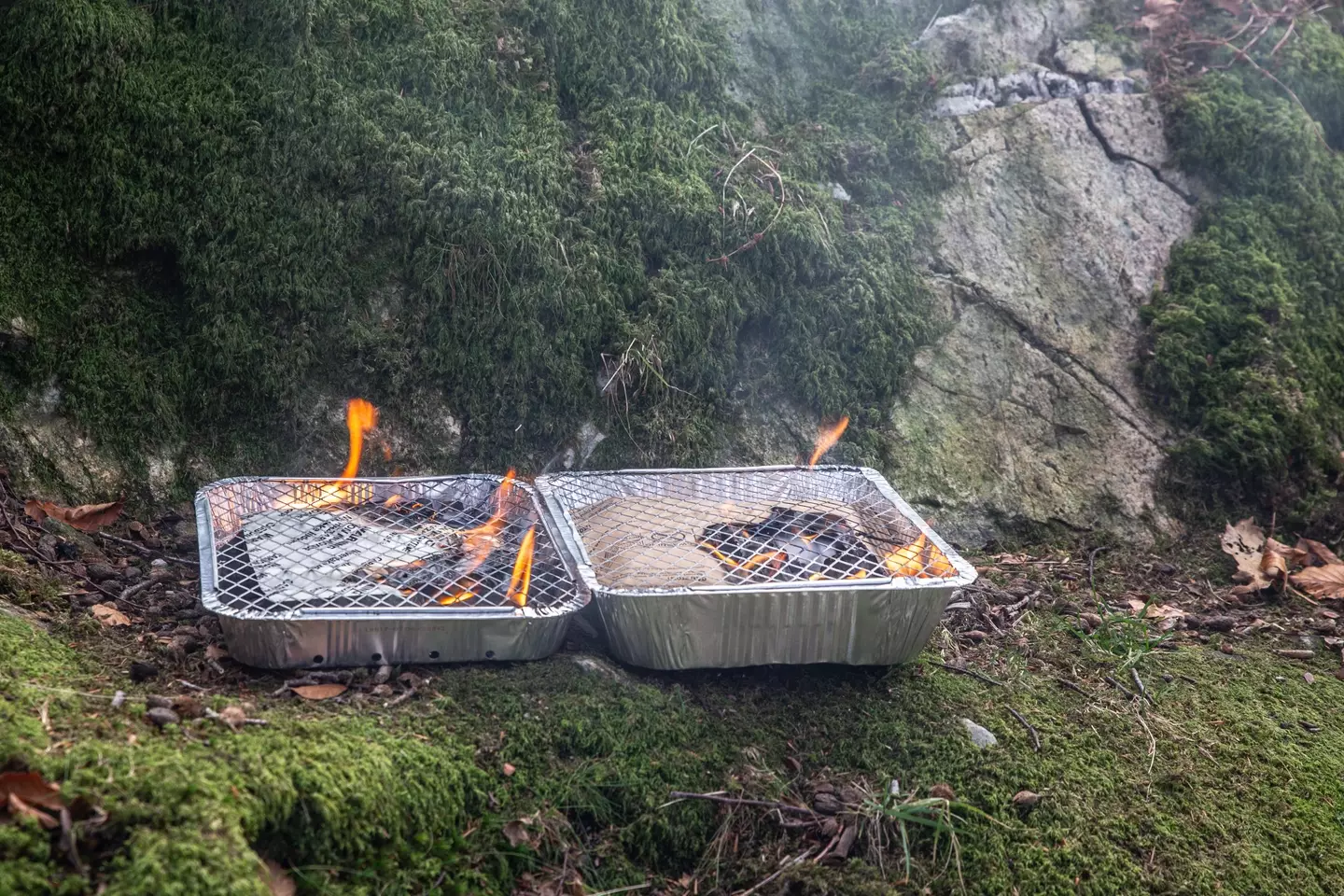
The government has launched a review into whether or not disposable barbecues should be banned in Britain ahead of summer, which means heading to the park on a rare hot British summer's day for a barbecue may never be the same again.
While Brits love nothing more than bringing out the barbecue as soon as temperatures creep above 15 degrees, grabbing a disposable one from your local supermarket could soon be banned nationwide as a result of a review which has been launched into the product and its connection to wildfires.

Advert
While reflecting that 'if used correctly' disposable barbecues 'do not, in themselves, pose a wildfire risk,' the MP for North Oxfordshire and Minister of State for the Department of Environment, Food and Rural Affairs (DEFRA) explained that it's 'when they are left unattended or used recklessly that the risk occurs,' The Express reports.
Victoria Prentis said: “It is clear to me that we do not have enough data on the role that disposable barbecues play in wildfire incidents.
“However, anecdotal evidence...suggests that they have been responsible for a number of serious incidents.”

Advert
Last week, a Commons debate was held to discuss the issue.
This year, the 'careless and reckless use of disposable barbecues' led to a 'significant number' of 75 serious wildfires in West Yorkshire, according to Labour MP Holly Lynch.
The 'scale of the problem and devastation it causes' was also stressed by Lynch, despite her acknowledgement that a full-on ban 'sounds like a big step'.
While councils already have the authority to prohibit disposable barbecues being used in public spaces through Public Space Protection Orders, they should 'not be expected to pick up the bill,' Lynch argued.
Each year, it is estimated that over a million disposable barbecues are bought in the UK.
Advert
Disposable barbecues typically do not only contain single-use plastic, but charcoal which is not usually sustainably sourced. The product also can't be recycled or composted.
In a bid to combat the negative environmental impacts of disposable barbecues, both Aldi and Waitrose stopped selling them last month.
Each year, Waitrose estimates 7.4 tonnes of foil and 1.1 tonnes of shrink-wrap plastic could be saved from not selling around 70,000 disposable barbecues.
Advert
Shoppers have also been urged by Aldi to purchase mini portable barbecues instead, with it having predicted a saving of 35 tonnes of single-use waste packaging every year.
To try and prevent wildfires occurring in some of the country's best nature reserves, last year, the Co-op banned the selling of disposable barbecues in any of its stores within a one-mile radius of a national park.
The New Forest is one of various national parks which has recently completely banned the use of disposable barbecues.
Conservative MP for Keighley & Ilkley Robbie Moore stated that he thinks the product should be banned and that the Government 'should be looking at the implications of their use in places where there have been higher instances of these sorts of fires, particularly on moors'.
Advert
However, Moore commended the review as a 'good start,' and 'recognition that the Government want to do something about' the issue.
Mike Amesbury, a local government spokesperson for the Labour party, called on the Department for Environment to 'step up and become more proactive in tackling this growing problem'.
He concluded: "That should include consideration of whether disposable barbecues should be banned from sale entirely.
"The government certainly needs to encourage the small minority using barbecues in appropriate locations to be more responsible – and think of the potential consequences for people, the environment and livestock.”
If you have a story you want to tell, send it to UNILAD via [email protected]
Topics: UK News